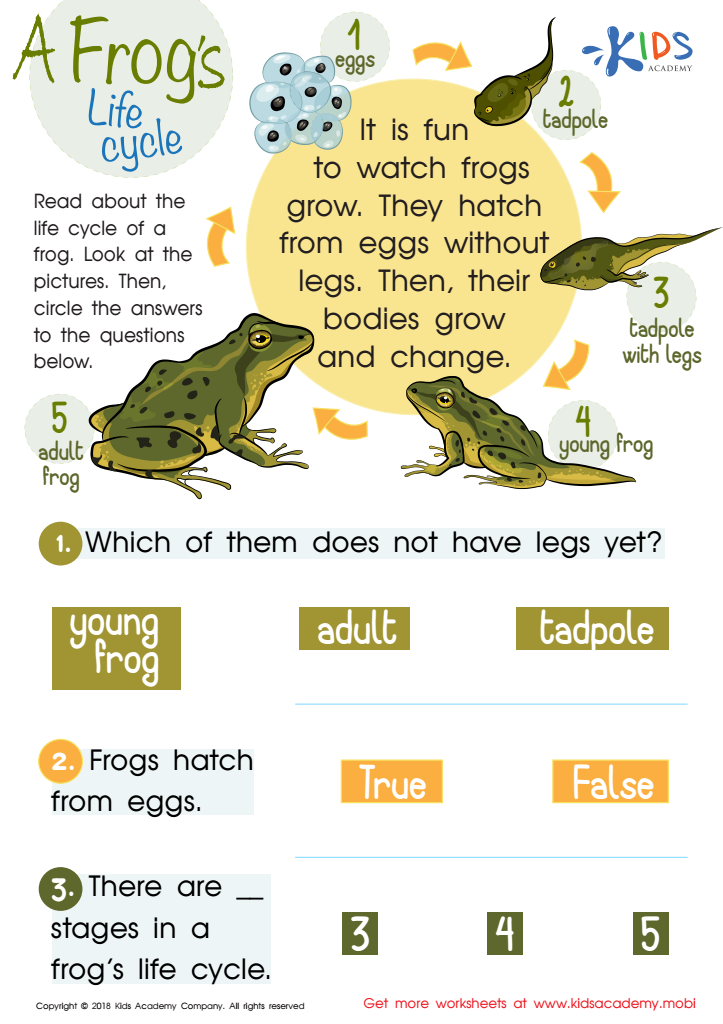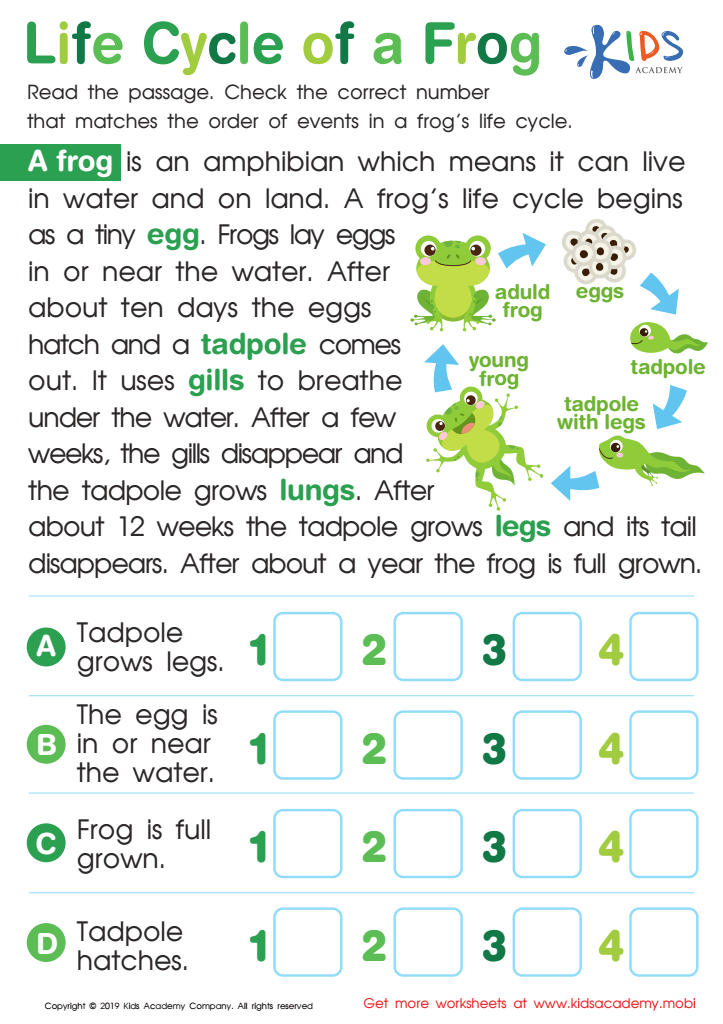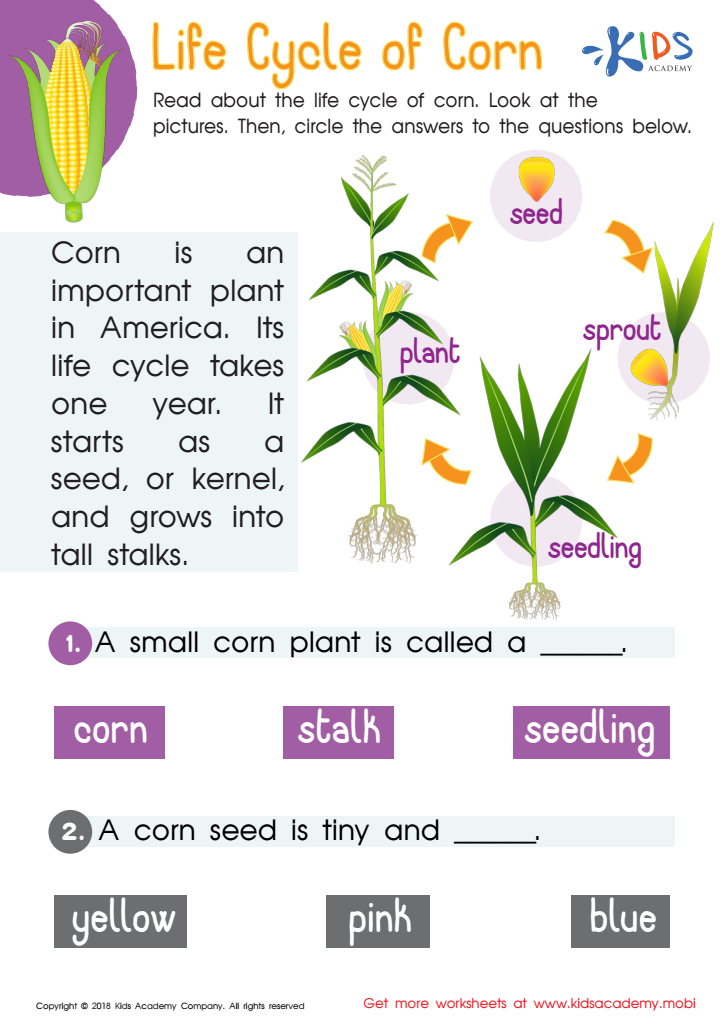Understanding life cycles Reading Non-Fiction Worksheets for Ages 4-7
3 filtered results
-
From - To
Discover engaging and educational worksheets designed to help young minds (ages 4-7) grasp the fascinating concept of life cycles. These non-fiction resources from Kids Academy introduce children to the step-by-step growth and development of various living organisms. Perfect for sparking curiosity and enhancing reading comprehension, each worksheet combines vivid illustrations and easy-to-understand text. Kids develop foundational skills as they explore the miraculous journeys of plants, animals, and insects. Ideal for both classroom and home learning, these worksheets offer a fun, interactive way to teach science while reinforcing non-fiction reading abilities. Jumpstart your child’s learning adventure today!


A Frog’s Life Cycle Worksheet


Life Cycle of a Frog Worksheet


Life Cycle of Corn Worksheet
Understanding life cycles and reading non-fiction are crucial areas that should captivate parents’ and teachers’ attention for children ages 4-7 because they lay foundational educational frameworks. At this developmental stage, young children are naturally curious about the world around them, eagerly asking “why” and “how” about everything. Introducing life cycles, such as those of plants, animals, or insects, harnesses this curiosity and opens doors to comprehending fundamental biological processes. This understanding fosters an early appreciation for nature and instills respect for living organisms and their environments, which can lead to a lifetime of responsible stewardship and inquisitive learning.
Simultaneously, engaging with non-fiction texts plays a critical role in educational development. Non-fiction reading enhances children's cognitive skills, enriching their vocabulary and broadening their general knowledge. It aligns with the natural investigative proclivities of early learners by providing factual information, which can cultivate critical thinking and a solid foundation for academic research skills. Furthermore, through exposure to diverse topics, children can discover and nurture their interests, which boosts motivation and enthusiasm for learning. Combining life cycles with non-fiction fosters both scientific literacy and reading competence, making the learning process integrative and holistic. Thus, understanding and promoting these aspects are essential steps in nurturing well-rounded, knowledgeable, and curious young minds.

 Assign to My Students
Assign to My Students



















